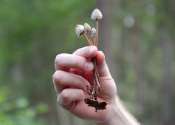Examining the brain circuits governing social decisions
Studies of how the brain processes social behavior are unraveling the complexities of how positive and negative interpersonal interactions may have long-term effects on neural function and memory. The findings were presented ...
Nov 9, 2022
0
21









